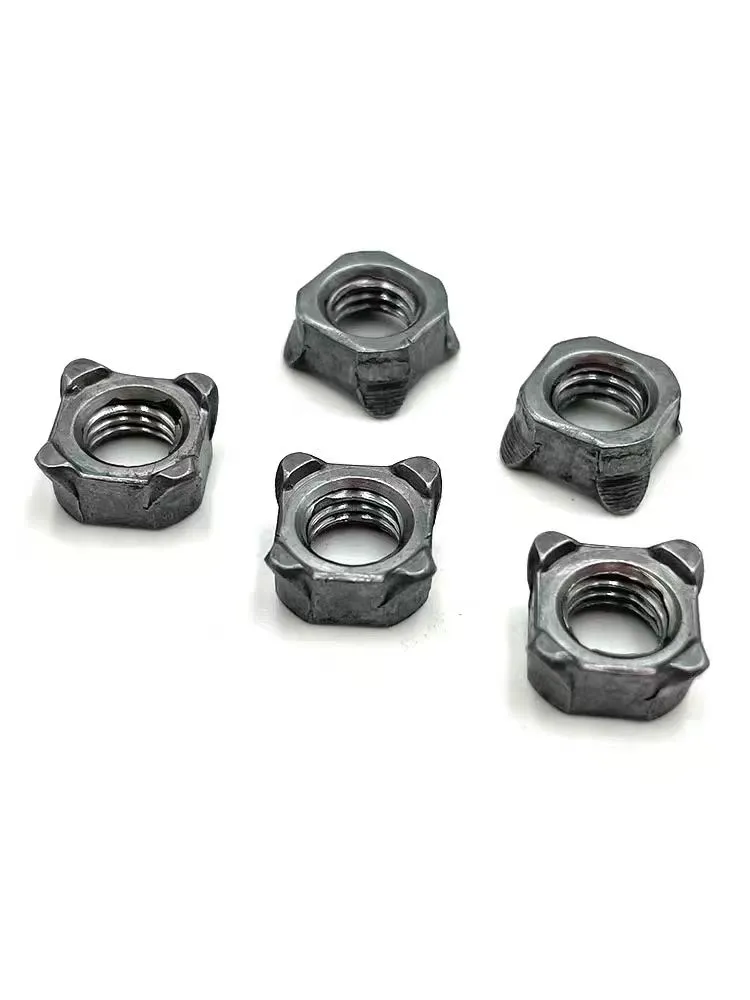

A Comprehensive Guide to DIN 127 Spring Washers and Their Applications
Dec . 06, 2024 05:59 Back to list
A Comprehensive Guide to DIN 127 Spring Washers and Their Applications
Understanding DIN 127 Spring Washers A Comprehensive Overview
DIN 127 spring washers are essential components in mechanical assemblies, designed to enhance the reliability and longevity of connections in various applications. The DIN in its name refers to the Deutsches Institut für Normung, which translates to the German Institute for Standardization. This organization sets forth standards for various engineering products, ensuring consistency and quality in manufacturing. The DIN 127 standard specifically outlines the specifications and dimensions for spring washers, which are crucial in maintaining the integrity of bolted connections.
Function and Importance
The primary function of a DIN 127 spring washer is to provide tension to bolted joints. When a bolt is tightened, the spring washer compresses, creating a locking effect that prevents the nut from loosening due to vibrations or dynamic loads. This feature is especially important in applications where machinery is subjected to constant movement, thermal expansion, or significant stress, such as in automotive, aerospace, and industrial machinery.
In addition to preventing loosening, spring washers also help distribute the load evenly across the surface, reducing the risk of damage to the connected components. This load distribution is particularly invaluable in applications where uneven stress could lead to premature failure.
Design Features
DIN 127 spring washers are characterized by their unique shape, typically resembling a flat washer that has been slightly deformed. This deformation creates a spring-like action, allowing the washer to return to its original shape after compression. The design is vital for the functionality of the washer, as it must maintain sufficient tension to resist loosening while also allowing for some flexibility for load variations.
The dimensions of DIN 127 washers are standardized, including aspects such as outer diameter, inner diameter, and thickness. These specifications ensure that the washers can be universally applied across different machinery and applications. Depending on the requirements, spring washers can be made from various materials, including steel, stainless steel, and non-ferrous metals, each providing specific advantages concerning strength, corrosion resistance, and temperature tolerance.
din 127 spring washer

Applications
DIN 127 spring washers find use in a wide range of applications across multiple industries. In the automotive sector, they are commonly employed in engines, transmissions, and suspension systems, where vibration is prevalent. Similarly, in the aerospace industry, they are utilized in aircraft assemblies, where safety and reliability are paramount. Furthermore, manufacturing plants often implement these washers in machinery and equipment to ensure that connections remain secure during operation.
Additionally, DIN 127 washers are found in construction equipment, consumer electronics, and even furniture assemblies. Their versatility makes them an indispensable component across various sectors.
Installation and Best Practices
Proper installation of DIN 127 spring washers is essential to harnessing their full potential. It is crucial to place the washer under the nut or screw head, ensuring that it compresses properly when the fastener is tightened. While tightening, care should be taken not to over-torque, as this could lead to a loss of tension in the washer and reduce its effectiveness.
Regular inspection of bolted joints is also recommended, especially in high-stress environments. It’s important to check for signs of wear, deformation, or mechanical failure, as these could indicate that the washer is no longer performing effectively.
Conclusion
In summary, DIN 127 spring washers are critical components that play a significant role in ensuring the reliability and stability of mechanical connections across various industries. By providing tension and load distribution, they help prevent loosening and potential failure due to vibrations and dynamic loads. Understanding the design, function, and proper installation of these washers is essential for engineers and technicians alike, ensuring that their applications remain safe and effective over time. As industrial demands continue to evolve, the importance of reliable components like DIN 127 spring washers will only grow, highlighting their invaluable role in modern engineering.
Latest news
-
High-Strength Hot-Dip Galvanized Bolts-Hebei Longze|Corrosion Resistance&High Strength
NewsJul.30,2025
-
Hot Dip Galvanized Bolts-Hebei Longze|Corrosion Resistance&High Strength
NewsJul.30,2025
-
Hot Dip Galvanized Bolts - Hebei Longze | Corrosion Resistance, High Strength
NewsJul.30,2025
-
High-Strength Hot Dip Galvanized Bolts-Hebei Longze|Corrosion Resistance, Grade 8.8
NewsJul.30,2025
-
Hot Dip Galvanized Bolts-Hebei Longze|Corrosion Resistance,High Strength
NewsJul.29,2025
-
High-Strength Hot Dip Galvanized Bolts - Hebei Longze Metal Products Manufacturing Co., Ltd.|corrosion resistance&high strength
NewsJul.29,2025

